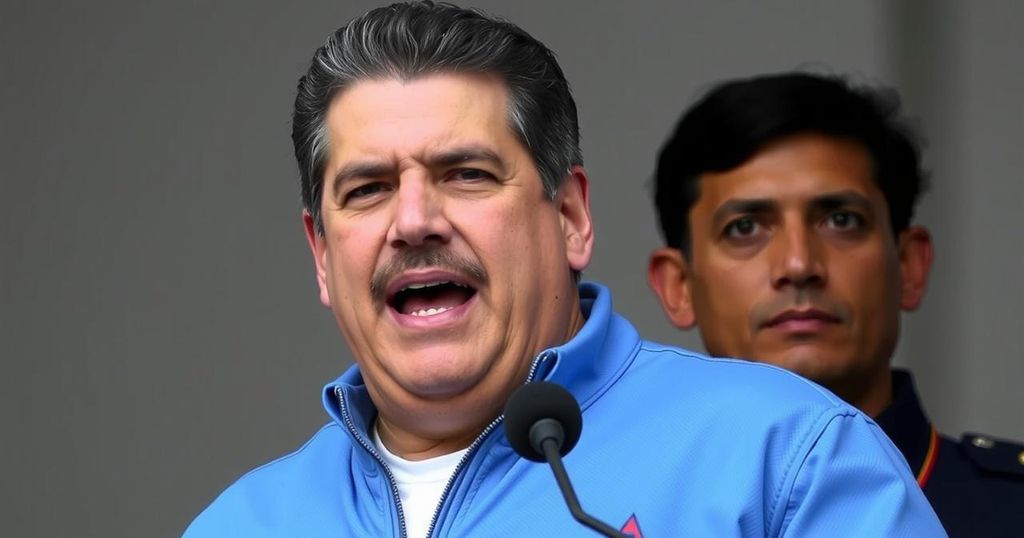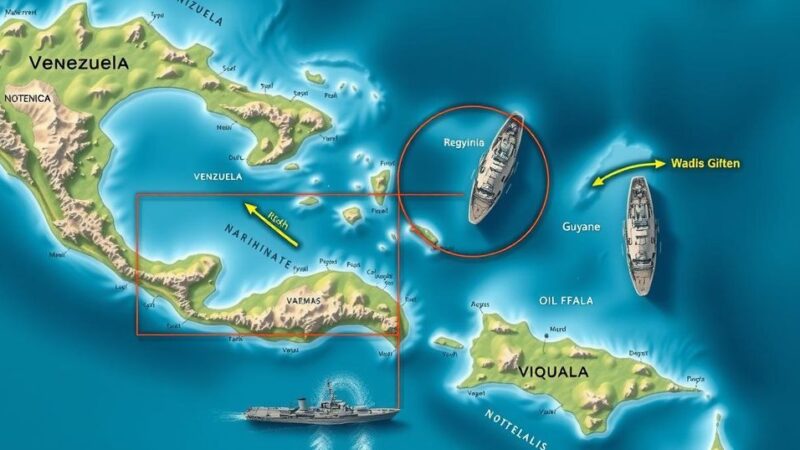Nicolás Maduro is commencing his controversial third term on January 10, following a disputed election that saw widespread accusations of fraud. Opposition figures, including Edmundo González, argue he is the rightful winner. Despite government repression, protests are anticipated, yet fear deters participation. The political dynamics also shift with Donald Trump’s re-election, raising questions about U.S. foreign policy towards Venezuela.
Nicolás Maduro, the controversial leader of Venezuela, is set to commence his third six-year term in office on January 10. This inauguration is being overshadowed by significant doubts surrounding the legitimacy of the election held on July 28 of the previous year. Despite Maduro’s declaration of victory, there is widespread belief that opposition candidate Edmundo González won by a substantial margin, a fact supported by the U.S.-based Carter Center, which noted that the published tally sheets by the opposition were credible.
Following the elections, the opposition has mobilized protests against Maduro’s regime. However, a brutal crackdown by the government, involving the arrest of over 2,000 individuals, has created an atmosphere of intimidation that could dissuade mass demonstrations. María Corina Machado, a prominent opposition figure, plans to re-emerge publicly in an effort to challenge Maduro’s hold on power.
Edmundo González, recognized as the rightful president-elect by the United States, is navigating a perilous situation after being forced to flee to Spain due to persecution. He has recently resumed his campaign for international support, meeting with U.S. President Joe Biden to discuss aiding Venezuela’s democratic opposition. In light of these political dynamics, the Maduro administration has escalated efforts to detain González, even offering a significant reward for information leading to his capture.
The landscape is further complicated by the upcoming re-election of Donald Trump as President, with speculation over his approach towards Maduro diverging from his previous administration’s vigorous criticisms. As negotiations loom, experts like Isaias Medina III emphasize the need for U.S. policy to prioritize Venezuelan liberation while countering threats posed by Maduro’s regime. The anticipated strategy shift reflects a broader understanding of Venezuela’s intricate political crisis and regional stability.
The current state of Venezuela’s political environment is deeply tumultuous, marked by allegations of election fraud and human rights violations under Nicolás Maduro’s leadership. His recent claims of victory in the electoral process have prompted significant unrest among opposition factions and skepticism from international observers and organizations. The necessity for strong, decisive action in response to Maduro’s oppressive tactics has become increasingly urgent, as indicated by reports of mass arrests and detainments.
In conclusion, Nicolás Maduro’s upcoming inauguration amid accusations of electoral fraud signifies a troubling continuation of his autocratic rule. The opposition remains resilient despite a climate of fear and oppression, as figures like Edmundo González strive to garner support both domestically and internationally. As the Biden administration navigates its relationship with an emboldened Maduro, the underlying goal for many remains clear: the pursuit of freedom and democracy for the Venezuelan people.
Original Source: www.foxnews.com






